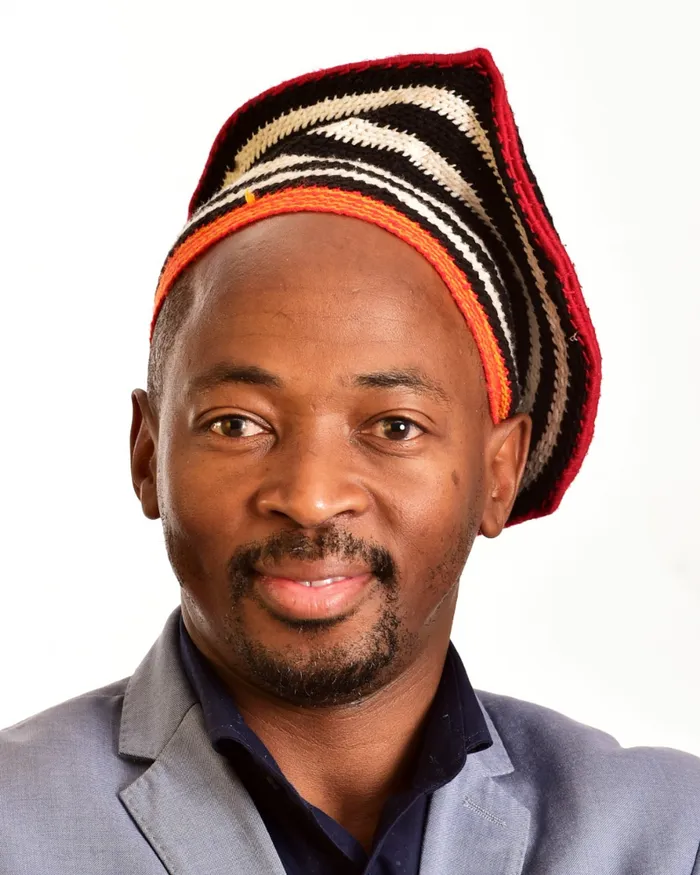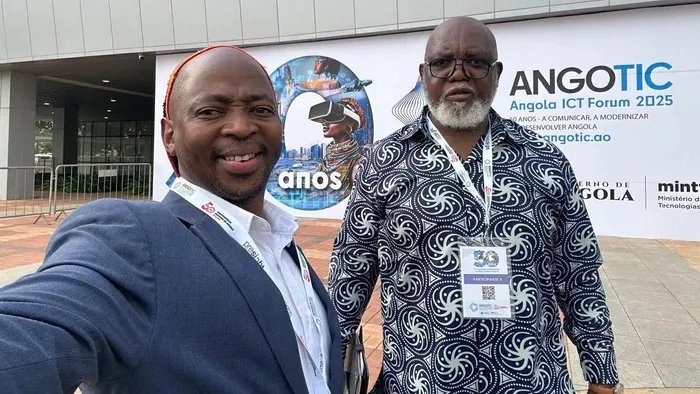A Ride Towards Tomorrow: Angola's Youth Reclaim the Road

Ayanda Holo is GCIS Director of International Media Relations
Image: Supplied
The energy in Talatona feels different these days. From the airport’s crowded car park to the city’s outer ring roads, something is shifting.
A few years ago, Da Costa Armindo Alberto, 24, was ferrying passengers informally in a worn-out Toyota. “We called it survival,” he says. “Now, I call it work and I can make 25,000 Kwanzas a week.”
With a smartphone in hand and a digital platform connecting him to customers, Alberto now drives professionally, generating income digitally. His journey from hustle to structure reflects a broader trend: Angola’s youth are using digital tools to carve out new income streams and rewrite what economic opportunity looks like in the 21st century.
From Hustle to Hope: The Youth Behind the Wheel
Angola's economy has long struggled to absorb its young workforce. The numbers paint a stark reality. According to data consulted by Lusa in the Employment Survey Quick Information Sheet, in the first quarter, the fall in the unemployment rate was more significant in the younger population, between 15 and 24 years old, falling from 63.5% to 54.3%.
The youth are unemployed, and formal job creation has lagged behind population growth. But in the alleys of Luanda and its highways, something is shifting. Young men like Alberto and women are plugging into e-hailing platforms, gaining access to a fragmented but formalised transport sector.
This not only opens revenue-generating opportunities in urban areas but also has the potential to bridge the rural-urban divide, offering earning opportunities to youth from remote areas.

The author with Professor Paul Tembe.
Image: Supplied
At this year's ANGOTIC forum, Angola's leading tech and innovation summit, I listened to software developers, transport regulators, ICT big players such as Google, regulators and startup founders converge around a shared belief: digital platforms can be engines of inclusion.
Ride-hailing services, when localised and safely regulated, are emerging not as luxury conveniences but as launchpads for youth-led economic mobility.
Where Digital Meets Development
The country's newly launched Youth Employment and Opportunities Project 2025–2029, backed by $250 million in World Bank financing, aims to create half a million youth jobs. But beyond headline numbers, the shift lies in how these jobs are created. A vibrant digital economy is no longer optional; it is the cornerstone of a diversified Angola.
What makes this moment potent is the dual nature of the opportunity. E-hailing services not only provide immediate income but it’s a definite pathway towards formalisation. I met a young man who had just spoken with Carmen Mateia at ANGOTIC and João Victor from EducaEmpreende, an initiative empowering small businesses through practical training in financial management and leadership. In him, you could see how digital dialogue is shaping real-world development.
Last night, Alberto shared the story of a fellow driver who had earned enough through e-hailing to register a second vehicle, this time in a friend’s name. It wasn’t just survival; it was a clear step toward compliant entrepreneurship and scalable income. His friend is now an employer, a part-owner, and a purpose-driven driver. This is what empowerment through technology truly looks like.
From Side Hustle to System of Empowerment
Carmen Marteois who works on projects with the World Bank, a familiar voice in Angola's youth empowerment circles, put it candidly: "When the majority of youth operate outside the formal system, you don't just need jobs, you need platforms that formalise work. Thus, my work focuses on improving youth choices on employability and entrepreneurship" stressed Ms Mateia.
Her point is echoed by civic tech advocates and other activists who warn that unless women and rural youth are also integrated into these platforms, a digital divide will harden existing inequalities. It's crucial to ensure gender equality in the digital economy, providing equal opportunities for all youth.
Transport as Infrastructure, Not Just Transit
To understand the impact of e-hailing in Angola, one must stop thinking of it as a consumer tech story.
It's infrastructure development! It's the safer way for young woman to arrive safely at Fabrica de sabao hub, to learn and empower themselves. It's how a food vendor restocks their fresh meat from Belas Business Park at dawn. These apps, often running on basic smartphones and 3G signals, plug gaps left by overburdened public transport systems.
And with every ride, there's a nudge to the broader system. The demand for app coverage is accelerating telecom upgrades; the need for digital payments is pushing banks to improve mobile services.
At ANGOTIC, Zamir Adam, Head of Lusophone Africa at Yango told me how they collaborate with fintech and insurance providers to enhance digital and financial inclusion for drivers, while maintaining alignment with local compliance practices. This is the organic ecosystem that is nurturing the boom in the e-hailing industry.
Caution on the Road Ahead
Could Angola's e-hailing sector now stand on the brink of a breakthrough? Until late 2023, these services proliferated in a largely unregulated space, highlighting their potential and the need for structure.
Challenges like driver oversupply and safety concerns underscored the urgency for more intelligent systems. Encouragingly, past government messages signalled a shift toward progress, with plans to license platforms, vet drivers, and promote fairness. This moment presents a powerful opportunity: to build a thriving e-hailing ecosystem that is innovative, inclusive, safe, and tailored to the needs of Angolans.
Some platforms have pre-emptively introduced security tools like panic buttons and identity verification. But the risks of digital exploitation, thin profit margins, algorithmic control, and lack of worker rights, remain pressing. If Angola is to avoid the darker sides of the global gig economy, it must craft laws that protect dignity alongside efficiency.
From Digital Passengers to Co-Drivers of Progress
Still, what struck me most was not the apps or the panels but the ambition in the air.
Graduates from Luanda actively develop their own software solutions. They are not just users but future platform builders. These are deep aspiration: that youth are not passive consumers of technology but co-authors of Angola's modernisation.
This is where the reader comes in, whether as policymakers, coders, international investors, funders, or passengers, we all have a role. Regulators must ensure fairness. Investors must look beyond extraction to empowerment. Users must demand safety and transparency.
And those of us privileged to observe must remember: what looks like a simple car ride may be part of a far bigger journey. Our collective actions and decisions will shape the future of Angola's digital economy.
As Angola marks 50 years of independence, its youth are charting the next route, through traffic, through inequality, through innovation.
Not with slogans, but with action. And somewhere in that gridlocked cityscape, from the Airport car park to the Totalatona Convention Centre, there is a young Alberto, a driver in a sedan, who taps "online" and drives the country forward!
* Ayanda Holo is the President of TV BRICS Africa.
** The views expressed do not necessarily reflect the views of IOL, Independent Media or The African.
Related Topics: